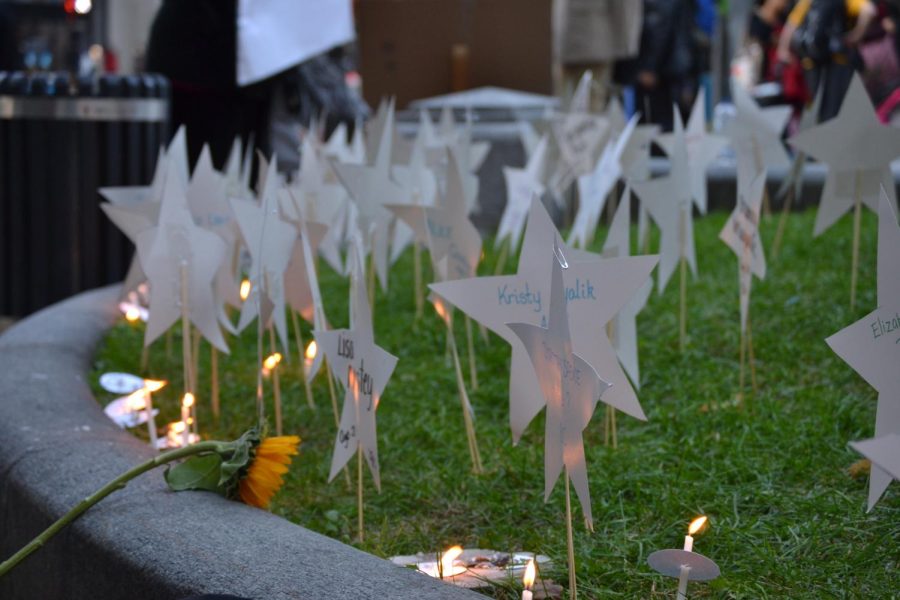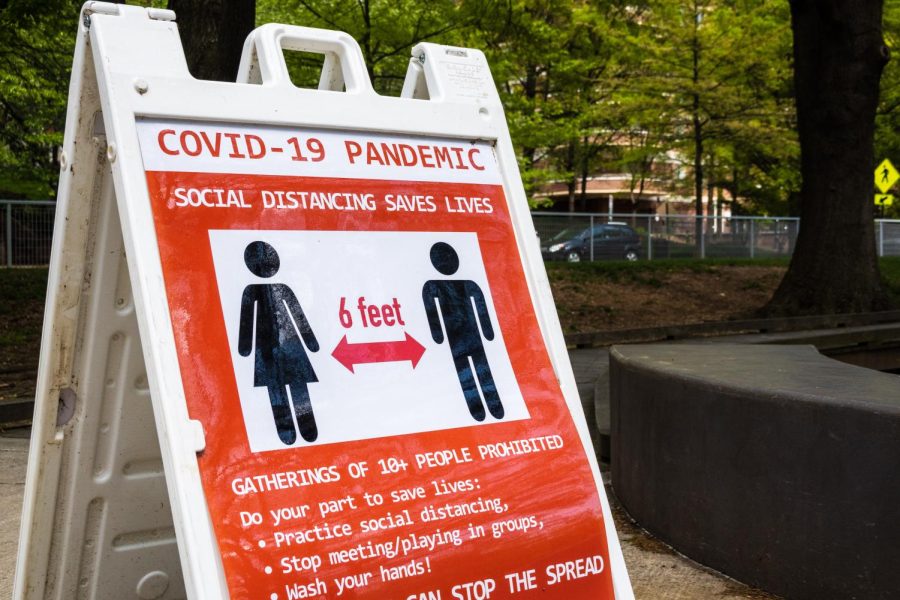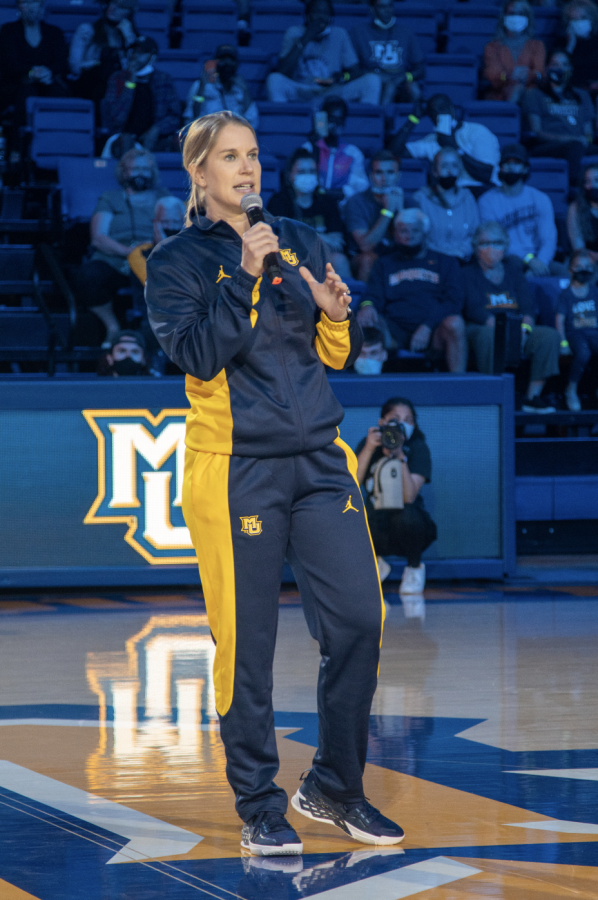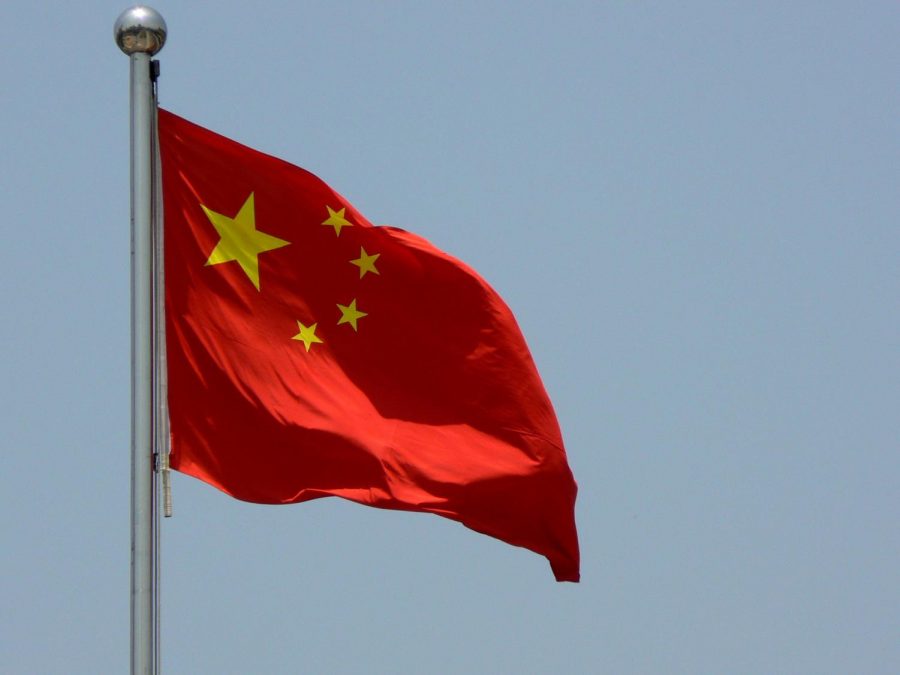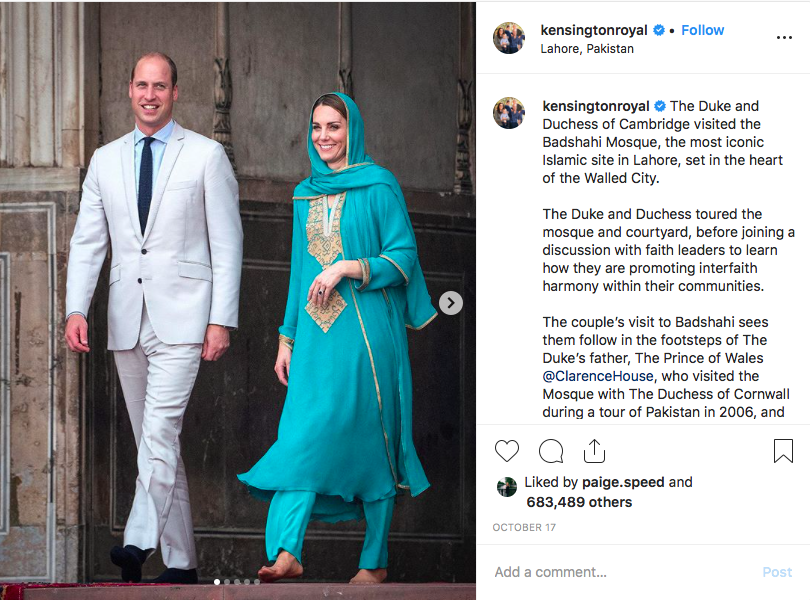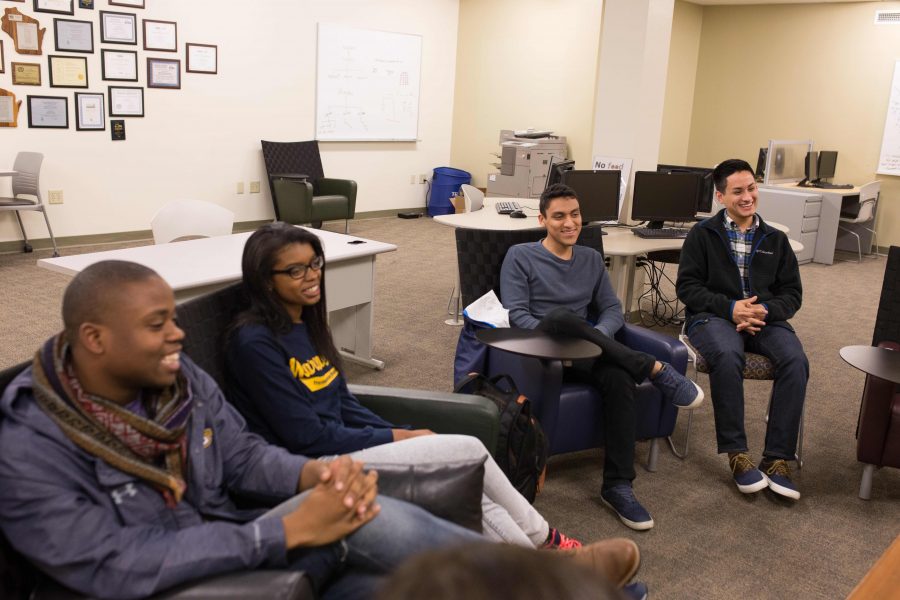
SuChin Pak, former MTV news correspondent and host of “G Word” on Planet Green, spoke to the Marquette community Tuesday at 7 p.m. in the Weasler Auditorium about issues of body image, culture and self-acceptance.
Pak showed a short clip from her MTV project called “My Life Translated: Body Image.” She walked viewers through discussion sessions with current teens and shared her own experiences being a first-generation Korean-American.
“I hated the way my eyelids had no folds to them,” she said. “In my family, that was a sign of beauty, and something that was sought after.”
When Pak realized at an early age that she did not have the inherited trait, she began to use masking tape on her eyelids to fake the appearance of a fold.
“I would hide the tape with a thick coat of eyeliner so no one would know that I was faking a crease on my eyelid,” she said.
Pak immigrated to the U.S. with her family from Korea when she was five years old.
“My parents still don’t speak English,” Pak said. “They had us in a tight bubble of only listening to 1950s Korean music and movies.”
At 8 years old, Pak discovered the world of American television and said she found her calling as a teen.
“When I was in high school, I was in a program called ‘Mock Government,’ and I got the position no one else wanted — the mock news reporter,” she said at the lecture. “Immediately after I began practicing my craft I slowly began to realize that this is what I wanted to do.”
Her parents, however, wanted Pak to have a career in law.
“I wanted to pursue television, but in my culture there were only two stereotypical options offered to me: being a Kung Fu master like Connie Chan or being an extra on MASH,” she said.
Pak offered attendees statistics that she has found regarding minorities in areas of mass media. She said that in the U.S. during the academic school year 2009-2010, minority students majoring in journalism or mass communication fields dropped 48 percent, the largest decrease since 1987. She added that there are only 10 percent of minorities represented in these fields, and the ownership of these news organizations is only 3 percent.
She explained to the audience that the Asian population may seem to have all the advantages and rich opportunities, but she challenged them to question whether or not they have actual power to make change.
“We can so easily judge a person by their ethnic background or how they look,” Pak said. “I believe within our lifetimes we will see newsrooms change to minority-driven.
“The biggest advice I would give to students interested in any major is to practice a little every day,” Pak said. “Jobs in the media require persistence and a love for the craft,” she said.
Since the 1990s, MTV has evolved into a more digitally advertised format, instead of a news- and projects-oriented outlet, Pak said.
“The station no longer needs news correspondents, and MTV is 90 percent digital,” she said. “We used to be able to creatively express and convey ideas, and now if you’re not making the ratings, you’re automatically off. That’s one of the reasons Jersey Shore has become so popular.”
Matt McGonegle, a senior in the College of Arts & Sciences and Programs Vice President for Marquette Student Government, said he took away many things from Pak’s speech, including new perspectives on broadcast media and what it was like to grow up in an immigrant household.
“I had no idea how young she was before she came to speak to us,” McGonegle said. “It’s amazing how much success she has had in such (little) time.”
Emily Carton, sophomore in the College of Education, decided to attend the talk because she had recognized Pak from watching television as a child.
“I really enjoyed her take on the media industry, the lack of diversity shown and her perspectives on body image,” Carton said.


